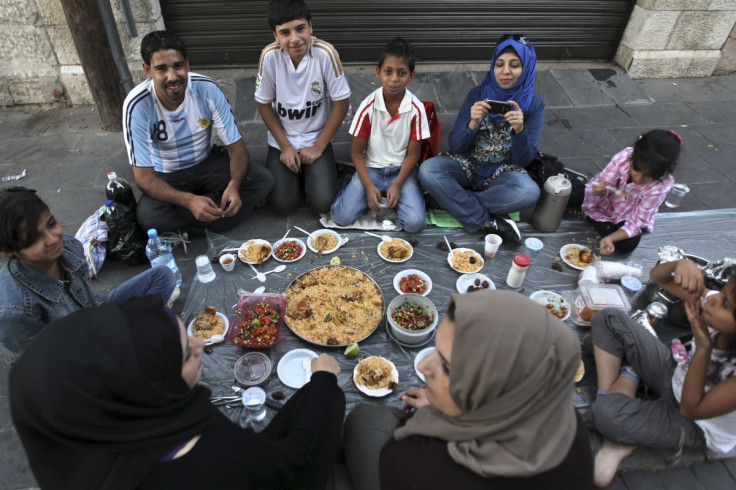Ramadan 2014: Is Fasting Really Bad for Health?

During the holy month of Ramadan, which began on June 29, Muslims restrict themselves from consuming food and drink from dawn to dusk.
Muslim devotees spend the entire month reading the Quran and doing charity work and only partake of two meals a day, Suhour (the meal before dawn) and Iftar (the meal after sunset).
UAE doctors have reported a surge in the number of patients with stomach ailments since the beginning of Ramadan, UAE daily The National reported.
According to the report, the emergency departments of UAE hospitals have reported increased cases of kidney problems and dehydration due to the long fasting hours.
"You get a lot more suffering with abdominal pain because of the pattern of eating after fasting," Dr Biniam Tesfayohannes, head of the emergency department at Mafraq Hospital, told The National.
"It is more or less double because of people eating in a very quick way immediately after fasting. Some people eat too huge an amount of carbohydrates. They get bloated. They get abdominal pains and they come in for that," he added.
Tesfayohannes also said that many Muslims don't follow the correct procedure of breaking their fast and these bad dietary habits were responsible for causing stomach ailments.
"Some people tell me they can not break the fast in a gentle way. While some will have some soup or juice, others will have a full meal. It is those who have a full meal that an hour or two later they get abdominal pain," Tesfayohannes said.
He also advised chronic patients, including diabetics, not to abstain from taking their medicines during Ramadan fasting, as this could lead to major health complications.
International SOS' medical director for the Middle East, Dr Salwan Ibrahim, says Muslims can follow simple rules to stay healthy during the holy month.
"That means staying hydrated, eating wisely and making sure to take sufficient rest. Fasters should adopt routines gradually and be moderate in their eating and drinking habits during the hours of darkness," Ibrahim told the newspaper.
© Copyright IBTimes 2025. All rights reserved.





















